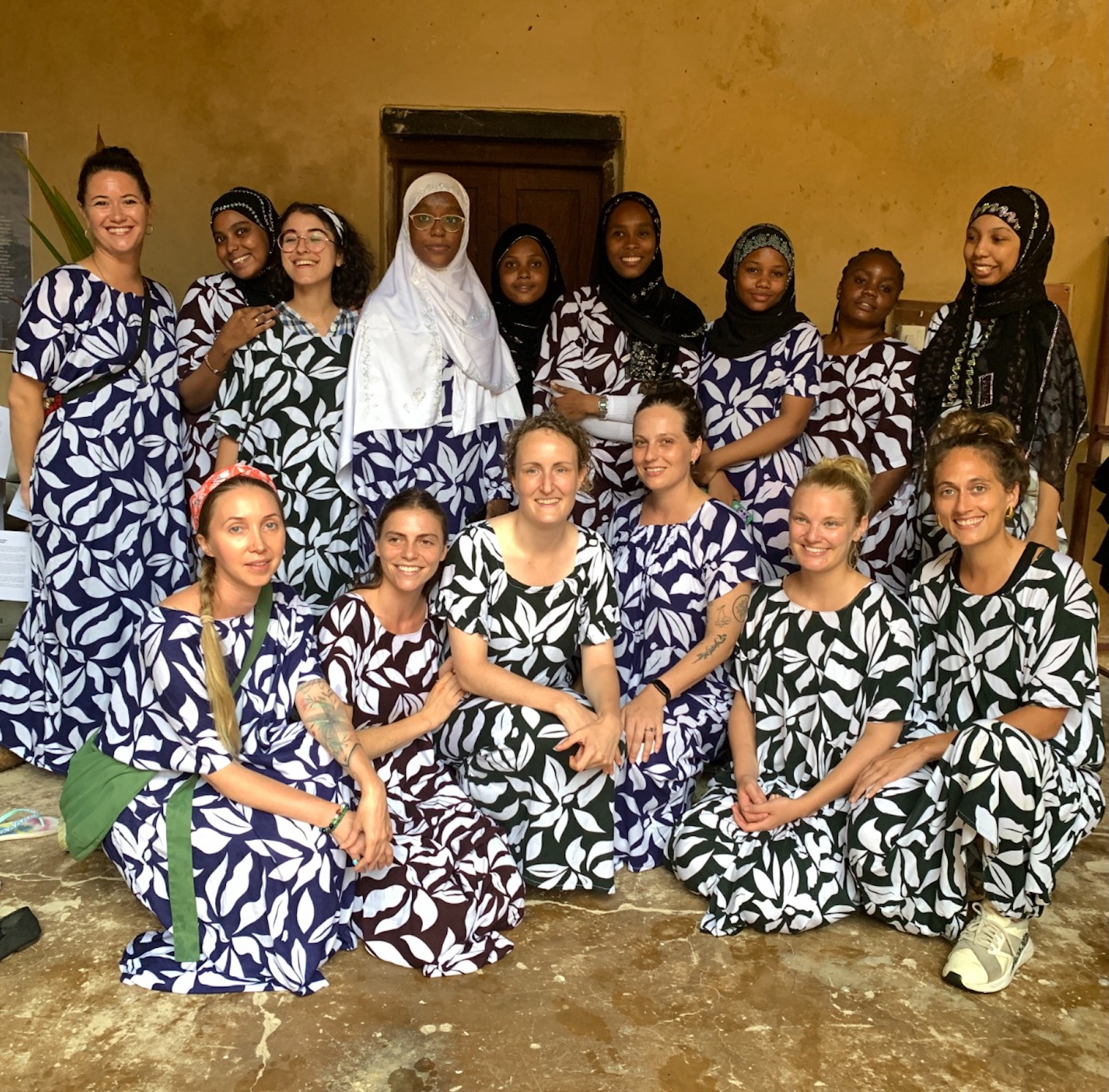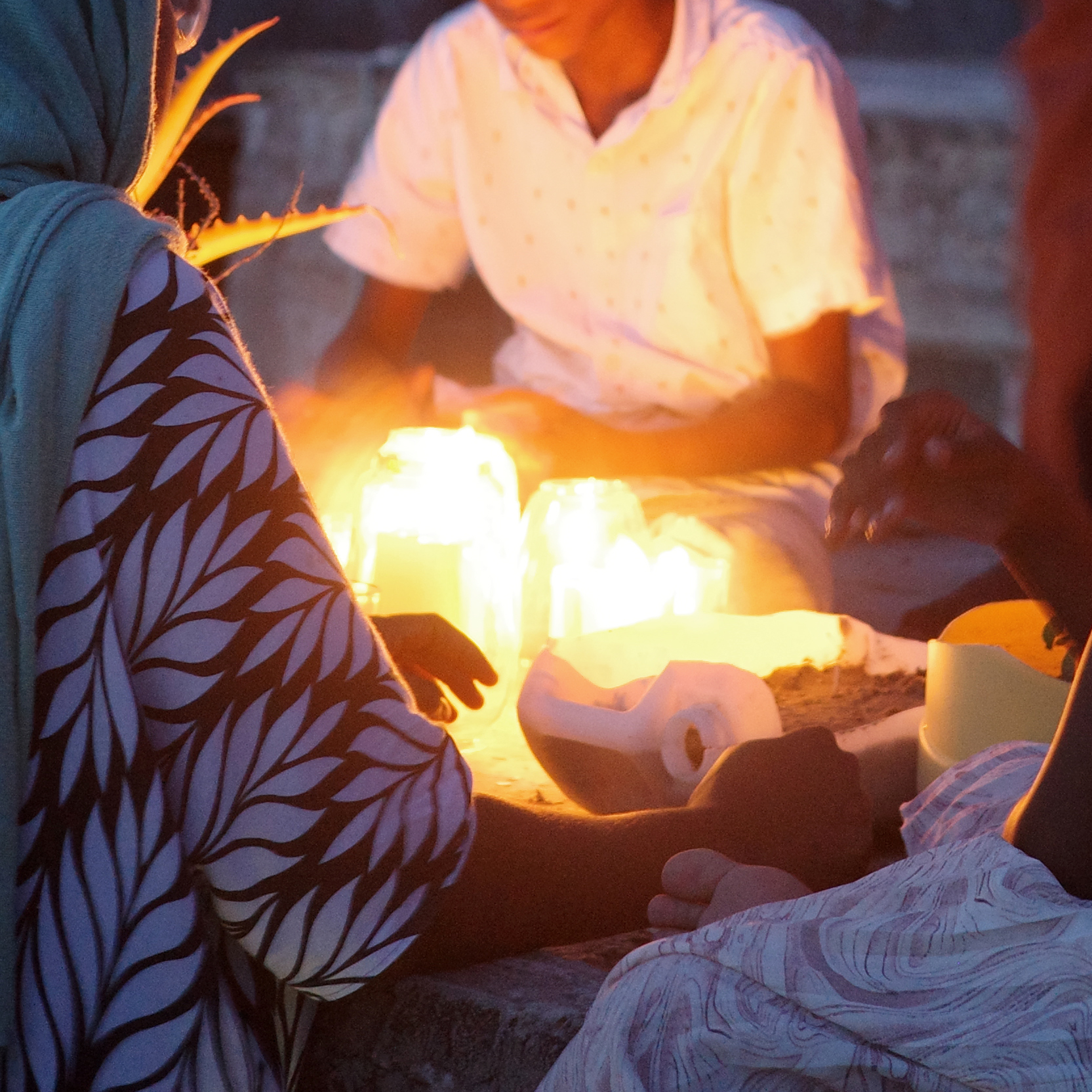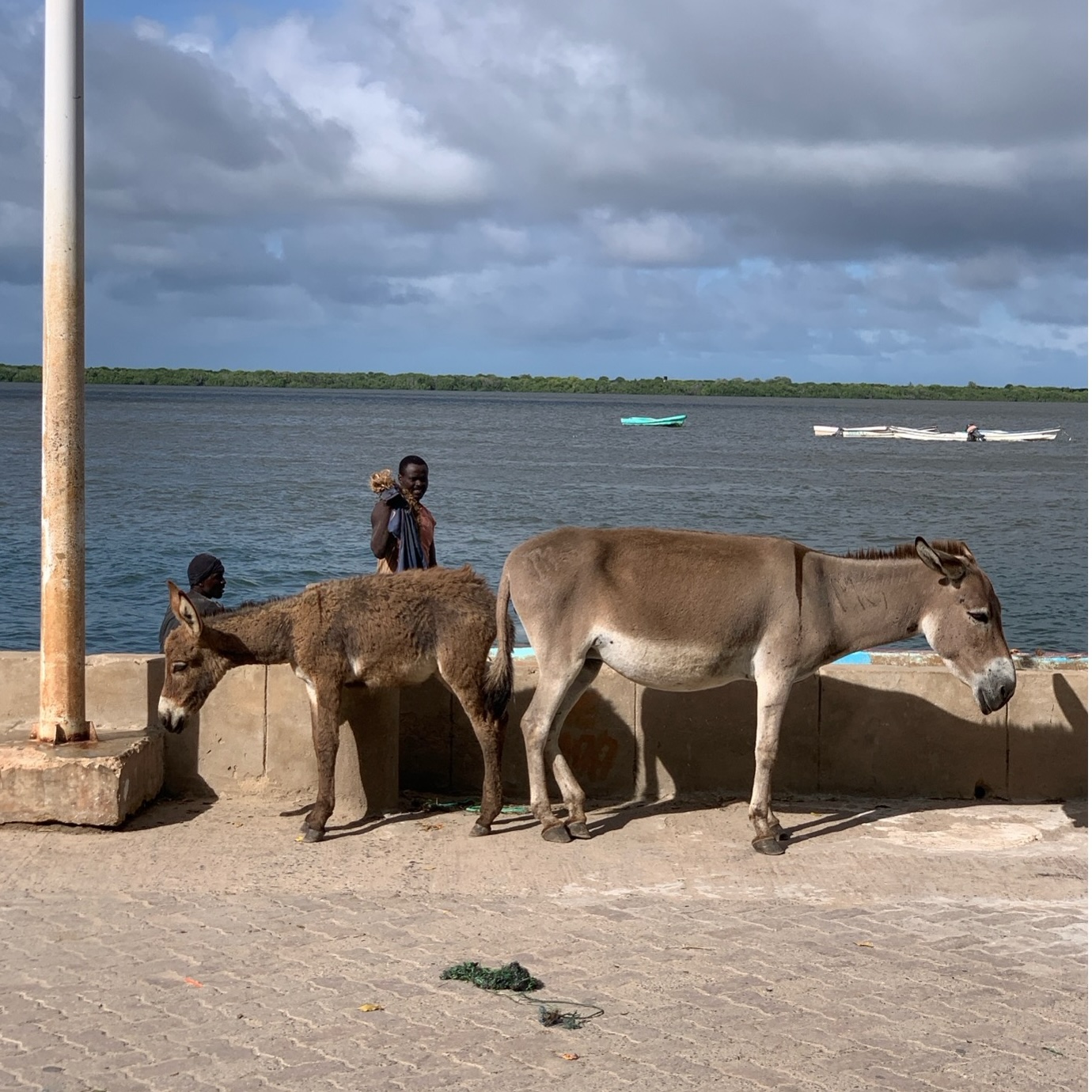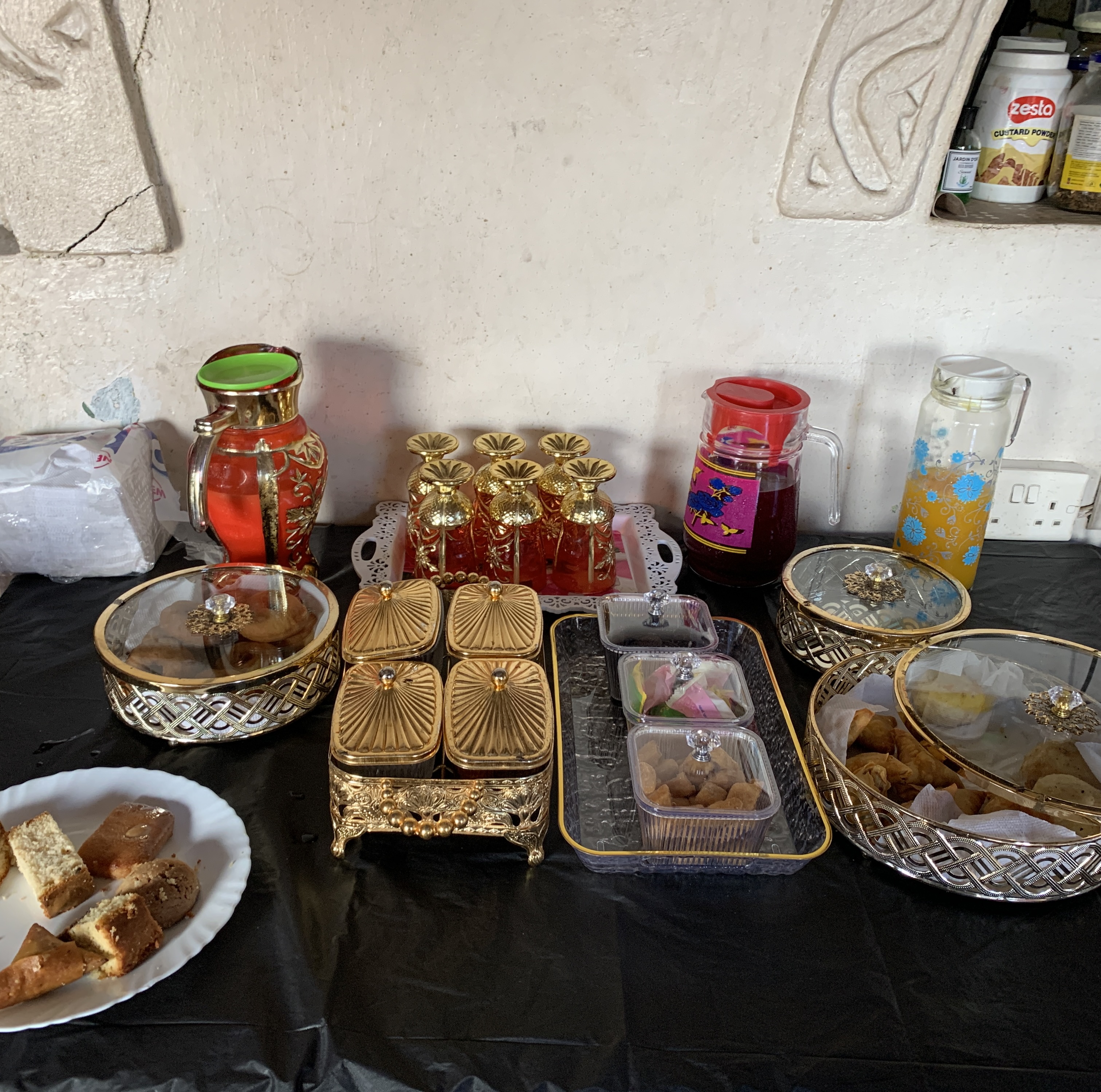Home - Field
Being part of an all-female cohort in 2025 opened up possibilities to us that were, based on cultural implications, more accessible to women. Male researchers, as non-relatives, can’t be easily hosted in a Swahili-Muslim household. As women, however, we had the opportunity to be accommodated with host families during our time in Lamu, which came with its own implications.
Daughters
Stepping into the role of ‘daughters’ in a Swahili-Muslim household involved more than just receiving security advice, such as the best routes to take, safest places to eat, and appropriate times to come home. It also meant being introduced to people who could support us at any time of day, from trusted moto-taxi drivers to shops where we could buy necessities on credit. We learned how to navigate the gendered norms of Lamu, knowing who could be allowed into the house and which men needed to wait outside while the women of the house put on their veils before receiving them in front of the door.
Friends
Sometimes our presence was less defined by family commitments and more by everyday exchanges. We talked about work, clothes, relationships, shared confidences, asked for opinions, spoke about our past and recalled funny stories and trips. Sometimes we would simply spend time together late into the night. This kind of relationship created a space of intimacy and mutual listening. In those moments, we were no longer just "guests" or "researchers" but became part of the household's social life. We were close enough to be entrusted with personal stories, but also had the freedom to simply be ourselves.
Ultimately, each family setting was different. Age, occupation, and the general configuration of the family were all relevant factors, as were the personal characters of each individual. Some of us felt anchored throughout the experience thanks to our host families, while others had a shorter but nonetheless enriching encounter.
Amidst all the laughter, meals, cosy evenings, and late-night conversations that we shared, casual remarks provided insights into politics, culture, and society at large, which inevitably shaped how we interpreted our research. These serendipitous moments confronted us with decisions to be made, prompting us to ask ourselves to what extent the home environment was supposed to contribute to the research.
Is it ethical to include informal dinner table conversations in our field notes? When does research begin and when should it pause?
![]()
Shared moments of joy
Daughters
Stepping into the role of ‘daughters’ in a Swahili-Muslim household involved more than just receiving security advice, such as the best routes to take, safest places to eat, and appropriate times to come home. It also meant being introduced to people who could support us at any time of day, from trusted moto-taxi drivers to shops where we could buy necessities on credit. We learned how to navigate the gendered norms of Lamu, knowing who could be allowed into the house and which men needed to wait outside while the women of the house put on their veils before receiving them in front of the door.
Friends
Sometimes our presence was less defined by family commitments and more by everyday exchanges. We talked about work, clothes, relationships, shared confidences, asked for opinions, spoke about our past and recalled funny stories and trips. Sometimes we would simply spend time together late into the night. This kind of relationship created a space of intimacy and mutual listening. In those moments, we were no longer just "guests" or "researchers" but became part of the household's social life. We were close enough to be entrusted with personal stories, but also had the freedom to simply be ourselves.
Ultimately, each family setting was different. Age, occupation, and the general configuration of the family were all relevant factors, as were the personal characters of each individual. Some of us felt anchored throughout the experience thanks to our host families, while others had a shorter but nonetheless enriching encounter.
Amidst all the laughter, meals, cosy evenings, and late-night conversations that we shared, casual remarks provided insights into politics, culture, and society at large, which inevitably shaped how we interpreted our research. These serendipitous moments confronted us with decisions to be made, prompting us to ask ourselves to what extent the home environment was supposed to contribute to the research.
Is it ethical to include informal dinner table conversations in our field notes? When does research begin and when should it pause?
Can it ever pause?
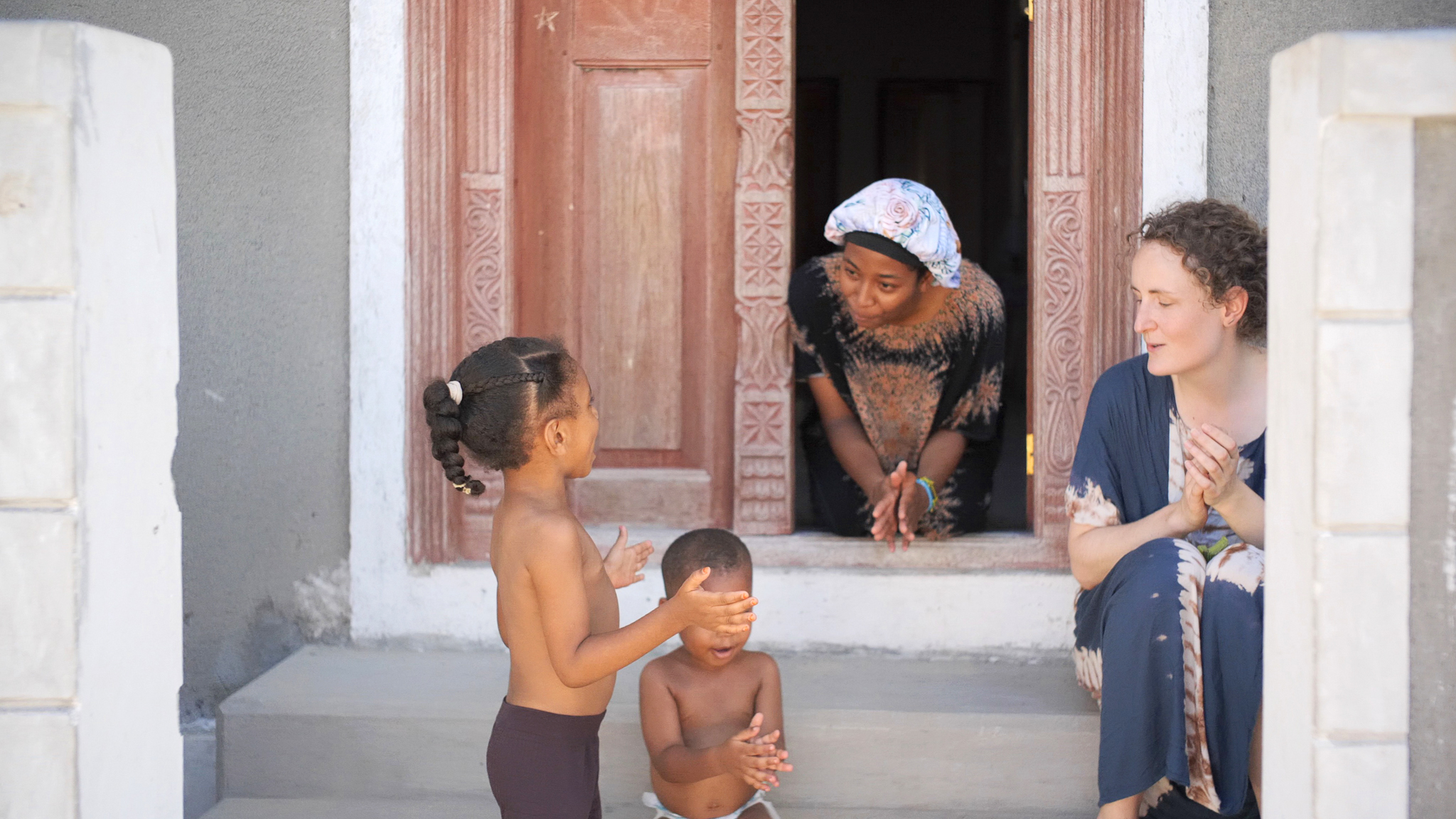
Shared moments of joy
“I wasn’t sure if I should welcome guests this year, but I’m happy that I did.”
- Host Mom/Sister
Without hesitation, most of our host families introduced us to their relatives, neighbours, and friends across Lamu. This helped us familiarise ourselves with the streets and form relationships with local people. As some of us began to recognise faces and greet people, we witnessed an ever-growing sense of safety in navigating the “field.”
Coming “home” meant returning to a space of routines, responsibilities, and roles to which we had become gradually attuned. This process inevitably took time and mental resources, but it also allowed us to engage with life in Lamu as active members of local communities, finding and shaping our roles depending on our individual situations.
Aunties
Sometimes we would become more like “aunties” or “big sisters,” as we would spontaneously help out by picking up the kids from school, baking a cake for them, or spending evenings full of fun and laughter. But beyond these voluntary responsibilities, many opportunities emerged for us to experience life as part of our host families. We were naturally included when family members attended social events. Weddings, in particular, gave us insight into the importance and distinct character of joyful, all-female spaces, as these gatherings, like much of Swahili social life, are organised along gender lines. Other occasions, such as birthdays or family outings, introduced us to the dynamics of a closely-knit extended family network.
![]()
Baking Swiss bread together with a host family
Reconciling our research work, personal needs and feelings with domestic routines was at times challenging:
Is there ever a right time to withdraw to do some reading or writing, or just to have a moment to yourself, without being rude or missing out on family life?
By getting to know each other and establishing an honest basis of communication with our host families, we slowly learned to navigate these situations. By building trust and deeper relationships, it became clearer what was personal and what was a cultural practice. Understanding this required the involvement of our wider networks, including families, research partners, and local interlocutors.
Ultimately, each family setting was different. Age, occupation, and the general configuration of the family were all relevant factors, as were the personal characters of each individual. Some of us felt anchored throughout the experience thanks to our host families, while others had a shorter but nonetheless enriching encounter.
In a research environment that was emotionally intense and often uncertain, for some of us, the families provided a sense of belonging that made the stay in Lamu not only more manageable but meaningful. This was initially overlooked, but later, while turning our research into seminar papers, we realised how much would have gone unnoticed if our host families hadn’t allowed us to immerse ourselves so deeply into their lives.
The “field”, we came to realise, didn’t stop at our doorstep.
Coming “home” meant returning to a space of routines, responsibilities, and roles to which we had become gradually attuned. This process inevitably took time and mental resources, but it also allowed us to engage with life in Lamu as active members of local communities, finding and shaping our roles depending on our individual situations.
Aunties
Sometimes we would become more like “aunties” or “big sisters,” as we would spontaneously help out by picking up the kids from school, baking a cake for them, or spending evenings full of fun and laughter. But beyond these voluntary responsibilities, many opportunities emerged for us to experience life as part of our host families. We were naturally included when family members attended social events. Weddings, in particular, gave us insight into the importance and distinct character of joyful, all-female spaces, as these gatherings, like much of Swahili social life, are organised along gender lines. Other occasions, such as birthdays or family outings, introduced us to the dynamics of a closely-knit extended family network.
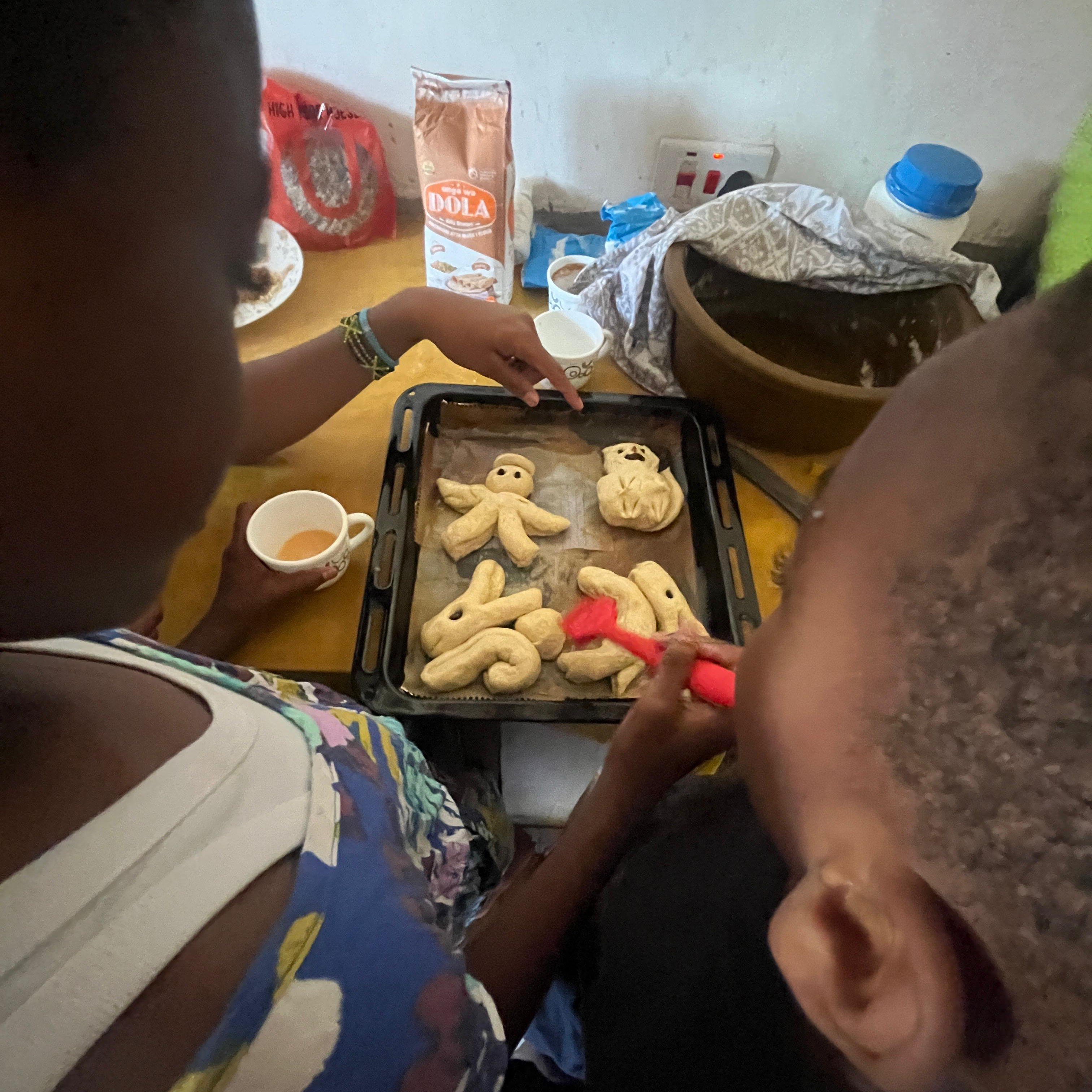
Baking Swiss bread together with a host family
Reconciling our research work, personal needs and feelings with domestic routines was at times challenging:
Is there ever a right time to withdraw to do some reading or writing, or just to have a moment to yourself, without being rude or missing out on family life?
By getting to know each other and establishing an honest basis of communication with our host families, we slowly learned to navigate these situations. By building trust and deeper relationships, it became clearer what was personal and what was a cultural practice. Understanding this required the involvement of our wider networks, including families, research partners, and local interlocutors.
Ultimately, each family setting was different. Age, occupation, and the general configuration of the family were all relevant factors, as were the personal characters of each individual. Some of us felt anchored throughout the experience thanks to our host families, while others had a shorter but nonetheless enriching encounter.
In a research environment that was emotionally intense and often uncertain, for some of us, the families provided a sense of belonging that made the stay in Lamu not only more manageable but meaningful. This was initially overlooked, but later, while turning our research into seminar papers, we realised how much would have gone unnoticed if our host families hadn’t allowed us to immerse ourselves so deeply into their lives.
